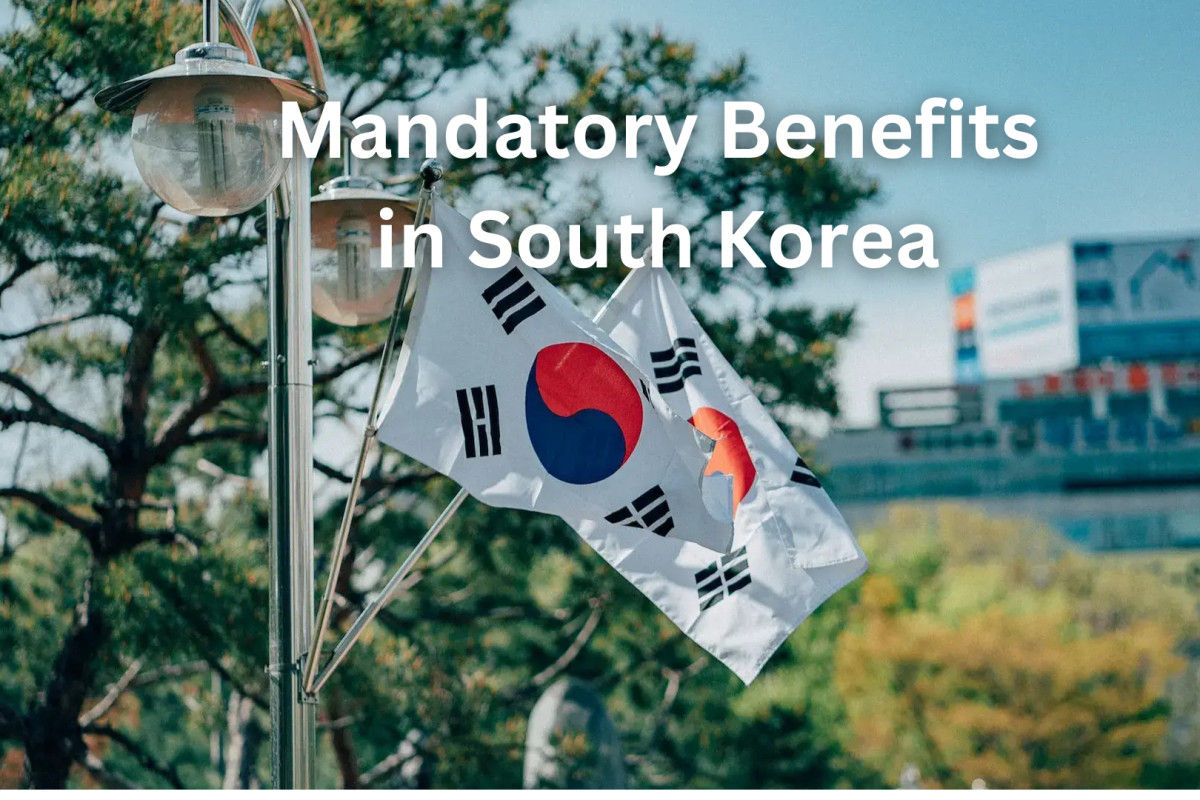South Korea mandates a comprehensive framework of employee benefits designed to promote financial security, healthcare access, paid leave, work-related injury compensation, and more. Employers, including those using Employer of Record (EOR) or Professional Employer Organization (PEO) services, must adhere to these regulations to foster employee well-being and ensure compliance with local labor laws.
1. National Pension Scheme (NPS) Contributions
Overview
The National Pension Scheme (NPS) is South Korea’s primary social security system, covering retirement, disability, and survivor benefits.
Contribution Rates
Employee Contribution: 9% of monthly salary
Employer Contribution: 9% of monthly salary
Pension Benefits
Payout Options: Members can receive their pension as a lump sum or as monthly payments upon reaching retirement age.
Survivor and Disability Benefits: Provides financial support to dependents in case of the member’s death and benefits for employees unable to work due to injury or illness.
2. Healthcare Coverage
National Health Insurance (NHI)
NHI is a mandatory health insurance program that provides coverage for all citizens and registered foreigners in South Korea.
Contribution Rates
Employer Contribution: Approximately 7.65% of monthly salary
Employee Contribution: Approximately 7.65% of monthly salary
Coverage Scope
NHI covers a broad range of medical services, including hospitalization, outpatient care, and preventive services. Many employees opt for additional private insurance for enhanced coverage.
3. Paid Leave Entitlements
Overview
South Korea’s labor laws emphasize the importance of paid leave to support employee well-being and work-life balance.
Annual Leave
Minimum Entitlement: 15 days of paid annual leave after one year of service, increasing with tenure.
Sick Leave
No statutory paid sick leave, but many employers provide it voluntarily.
Maternity and Paternity Leave
Maternity Leave: 90 days, with a portion funded by the government.
Paternity Leave: 10 days, reflecting the government’s commitment to family support.
Childcare Leave
Up to one year of unpaid childcare leave until the child reaches eight years old, with some employers offering paid options.
4. Work Injury Compensation
Overview
Under the Industrial Accident Compensation Insurance Act, employers must compensate employees for work-related injuries and occupational diseases.
Medical and Compensation Benefits
Coverage: Medical expenses and wage loss due to work-related injuries. Medical expenses covered up to $45,000 for one year from the date of the accident.
Permanent Disability and Death Benefits
Lump-sum compensation based on the employee’s age, monthly earnings, and severity of the injury.
Safety and Reporting Obligations
Employers must report work-related injuries within 10 days and implement safety measures to prevent accidents.
5. Public Holidays and Special Leave
Public Holidays
South Korea observes 16 public holidays each year, including major national and cultural holidays. Employees are entitled to paid time off on these holidays.
Special Leave Policies
While not mandated by law, many employers offer additional leave options, such as marriage or bereavement leave, to accommodate personal needs.
6. Additional Optional Benefits
Flexible Benefits Plans
Many employers provide flexible benefits plans, allowing employees to allocate a budget toward health, wellness, or lifestyle perks.
Employee Assistance Programs (EAPs)
EAPs offer counseling and mental health support services, reflecting the growing emphasis on employee well-being.
Transport and Meal Allowances
Though not mandatory, many employers offer transport or meal allowances to enhance employee satisfaction.
GlobainePEO – Your Trusted Partner
At GlobainePEO, we assist employers in navigating the complexities of mandatory benefits in South Korea. Our services ensure compliance with local labor laws and efficiently manage payroll contributions for essential benefits, including the National Pension Scheme (NPS), National Health Insurance (NHI), and Industrial Accident Compensation Insurance. With our expertise in workforce management, you can focus on growing your business while we ensure your employees receive the comprehensive support they need for their retirement, healthcare, and overall well-being.

